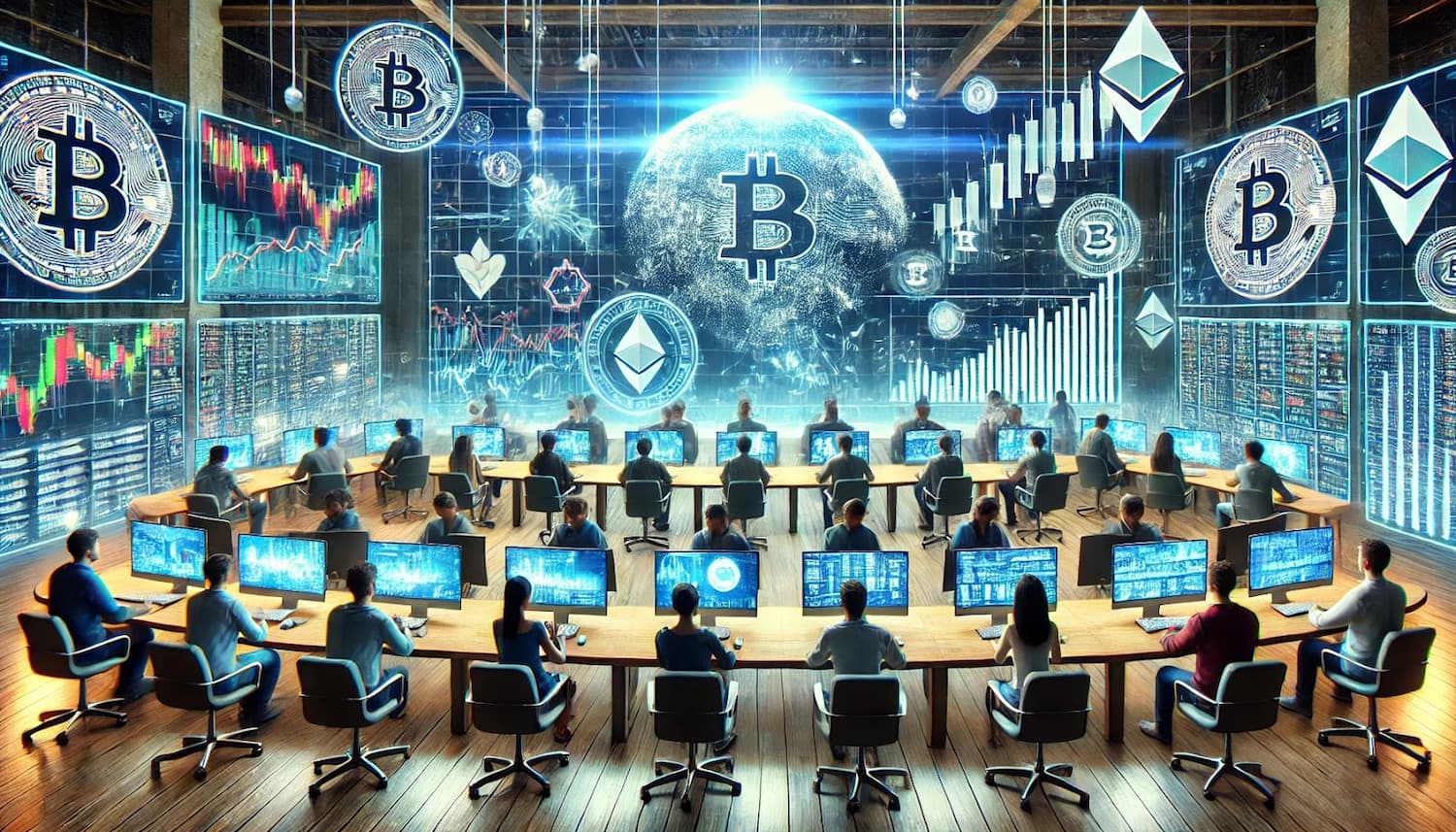Web3 game tokens represent a dynamic intersection of gaming and blockchain technology, allowing players to earn and trade valuable digital assets across various platforms. These tokens can be exchanged on online trading platforms that support blockchain assets, providing gamers with a new way to monetize their playtime and investment in virtual worlds. By using platforms that cater to cryptocurrency and token exchanges, users can convert their game tokens into other cryptocurrencies or even fiat currency, depending on the platform’s capabilities and regulatory compliance.
To begin trading Web3 game tokens, one must first choose a reliable and secure trading platform. Exness MT4 is an example of a platform that, while traditionally known for Forex trading, has adapted to include various digital assets, offering robust tools and a user-friendly interface for traders. Here, gamers can leverage advanced trading features to manage their digital assets efficiently, ensuring they can capitalize on market trends and exchange their Web3 tokens for desired currencies or other cryptocurrencies with ease. This integration of traditional trading platforms with new blockchain technologies is pivotal for the mainstream adoption of Web3 gaming tokens.
What are Web3 Game Tokens
Web3 game tokens are digital assets that operate within the blockchain ecosystems of decentralized gaming platforms, often built on technologies like Ethereum. These tokens are integral to the “play-to-earn” models that have become popular in the Web3 space, where players can earn tokens through gameplay, which can then be used within the game or traded on external platforms.
There are several key characteristics of Web3 game tokens:
- Decentralization: Unlike traditional gaming currencies, Web3 game tokens are typically governed by decentralized protocols. This means no single entity has control over the issuance, rules, and transactions of the tokens, which can contribute to a fairer and more transparent gaming environment.
- Interoperability: Many Web3 game tokens are designed to be used across multiple gaming platforms and ecosystems. This interoperability is facilitated by the standardized token protocols like ERC-20 or ERC-721 (for non-fungible tokens, NFTs), which allow tokens to be easily integrated into different games and applications.
- Ownership and Tradeability: Players have true ownership of their Web3 tokens, evidenced by their blockchain records. This ownership allows them to trade tokens on various cryptocurrency exchanges or specialized gaming marketplaces, potentially earning real-world value from their in-game activities.
- Utility: Within the gaming environments, these tokens can have multiple utilities. They might be used to purchase in-game items, unlock special features, or gain access to particular areas within the game. Some tokens also carry governance functions, allowing holders to participate in decision-making processes regarding the game’s development and updates.
- Earn and Invest Model: Players can earn tokens through gameplay, contributing to the game’s ecosystem, or participating in special events. This model not only enhances engagement but also provides players with an opportunity to invest in the game’s economy, speculating on the tokens’ value or earning dividends from the game’s success.
How Web3 Game Tokens Work
Web3 game tokens harness the power of blockchain technology to create unique, decentralized gaming experiences. These tokens are not just virtual currencies but also act as integral components of gaming ecosystems, facilitating a variety of interactions and transactions within digital worlds. Here’s an overview of how Web3 game tokens typically work:
1. Blockchain-based Foundation
- Smart Contracts: Web3 game tokens are governed by smart contracts on blockchain platforms like Ethereum. Smart contracts automatically execute transactions and enforce the rules of the token’s use within the game without the need for a central authority.
- Transparency and Security: Since transactions are recorded on a blockchain, they are immutable and transparent. This reduces the risks of fraud and cheating, providing a secure environment for players to trade and own assets.
2. Tokenomics in Games
- Issuance: The supply of tokens might be fixed, deflationary, or inflationary, depending on the game’s design. Some tokens are pre-mined, while others can be mined or earned through gameplay as part of the game’s economic model.
- Utility and Value: Tokens can be used for a variety of purposes within the game, such as purchasing items, accessing special levels, or influencing game development through voting. Their value can be tied to their scarcity, utility, and the popularity of the game.
3. Player Interaction and Economy
- Earn Through Play: Players can earn tokens by completing quests, winning battles, or achieving certain milestones within the game. This ‘play-to-earn’ model is a cornerstone of many Web3 games, providing players with tangible rewards that can have real-world value.
- Staking and Investment: In some games, players can stake their tokens to earn rewards or influence the game’s direction, similar to financial investments.
4. Trading and Liquidity
- Exchange Platforms: Players can trade their game tokens on various cryptocurrency exchanges or dedicated gaming asset marketplaces. This trading can be for other cryptocurrencies, game tokens, or fiat currencies, depending on the platform.
- Liquidity Pools: Some games integrate liquidity pools to facilitate smoother trading of tokens directly within the game environment or through decentralized finance (DeFi) platforms.
5. Integration with Other Dapps and Ecosystems
- Interoperability: Many Web3 game tokens are designed to be interoperable across different games and platforms. This is made possible through common standards like ERC-20 for fungible tokens and ERC-721 for non-fungible tokens (NFTs), which enable assets to move between ecosystems.
- Cross-Platform Utility: Tokens might have functionality not just within the original game but also in other games and applications, promoting a broader utility across the Web3 space.

Online Trading Platforms for Exchanged Web3 Tokens
Online trading platforms play a pivotal role in facilitating the exchange of Web3 tokens, including those used in gaming. These platforms vary widely in their structure, offerings, and target audience. Here’s an overview of the types of platforms available for trading Web3 tokens, highlighting their features and how they cater to different needs:
Centralized Exchanges (CEXs)
- Features: Centralized exchanges are known for their user-friendly interfaces, robust security measures, and regulatory compliance. They provide a wide array of services including spot trading, futures, and margin trading, which attract both novice and experienced traders.
- Advantages: CEXs offer high liquidity, meaning larger volumes of tokens can be traded quickly and at stable prices. They also provide customer support, which can be crucial for resolving issues and guiding users through complex trading scenarios.
- Security: Despite their centralization, many of these exchanges have strong security protocols, including encryption, two-factor authentication, and cold storage of assets to minimize risks.
Decentralized Exchanges (DEXs)
- Features: DEXs operate without a central authority, facilitating direct peer-to-peer transactions. They utilize smart contracts to execute trades, which are recorded directly on the blockchain.
- Advantages: They offer enhanced privacy and security, as traders do not need to transfer their assets to a third party. This setup reduces the risk of hacking and any single point of failure.
- User Base: DEXs are particularly popular among those who prioritize control over their own assets and those interested in newer or less mainstream tokens not listed on CEXs.
Hybrid Exchanges
- Features: These platforms combine elements of both CEXs and DEXs. They might use centralized mechanisms to match orders but decentralized settlement to enhance security.
- Advantages: Hybrid exchanges can offer the fast transaction speeds of CEXs while maintaining the security benefits of DEXs. They are ideal for users seeking a balance between ease of use and control over their assets.
Specialized Crypto Asset Trading Platforms
- Features: Some platforms focus specifically on certain types of assets, such as gaming tokens or non-fungible tokens (NFTs). These platforms often provide additional tools and features tailored to the specific needs of their target markets.
- Advantages: They can offer deeper market insights, specialized trading pairs, and community support for specific types of tokens. This specialization can be particularly advantageous for traders focused on niche markets.
Considerations When Choosing a Platform
- Regulatory Compliance: Depending on the user’s location, the regulatory environment might be a significant factor. Some users may prefer platforms that comply with specific legal frameworks to ensure the security of their transactions and potential recourse in the event of disputes.
- Fee Structure: Understanding the fee structure is crucial as fees can vary widely between platforms and can significantly affect profitability, especially for high-volume traders.
- Reputation and Security: The platform’s reputation for security, customer service, and reliability should be thoroughly veted. Past incidents such as hacks, outages, or regulatory issues are critical to consider.
- Market Access: Different platforms provide access to different ranges of tokens and markets. Users should consider whether a platform supports the specific Web3 tokens they are interested in trading.
Conclusion
Web3 game tokens are revolutionizing the gaming industry by integrating blockchain technology to create a decentralized, secure, and economically viable ecosystem for gamers. These tokens not only enable players to earn real value through gameplay but also offer them true ownership of their digital assets. The ability to trade these tokens on various online platforms further enhances their utility and accessibility, allowing gamers to monetize their achievements and participate in a broader digital economy. As the market for Web3 tokens expands, the role of online trading platforms becomes increasingly critical. These platforms, whether centralized, decentralized, or hybrid, provide essential infrastructure for the secure and efficient trading of digital assets.




